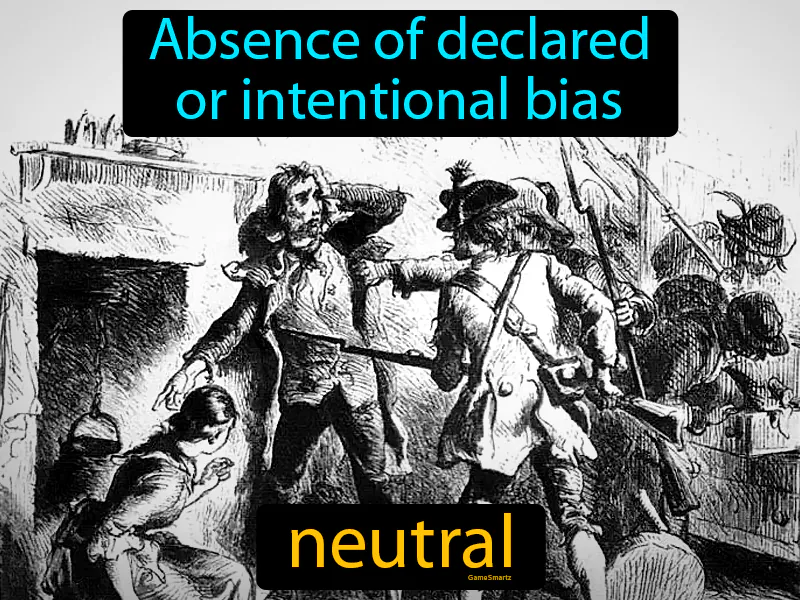Neutral
Neutral: Easy to understand
In the early days of the United States, being neutral meant not taking sides, especially during conflicts like the wars between Britain and France. This was important because the young nation wanted to avoid being dragged into costly wars and maintain peaceful trade relations with both countries. Neutrality helped the US focus on growing its economy and establishing itself in the world without external pressures. Today, neutrality is still important in everyday life, such as when mediating disputes between friends and remaining impartial to understand both sides. For example, if two friends are arguing, staying neutral can help you listen to both perspectives and encourage them to find a solution without escalating the conflict.

Practice Version

Neutral: Absence of declared or intentional bias. Neutral. Neutral in History means presenting facts without taking sides or showing preference.